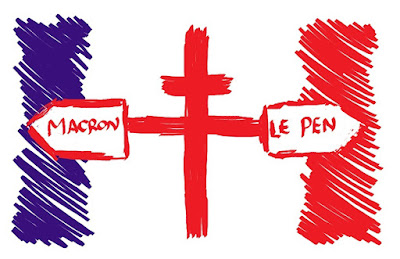An article at Foreign Policy last month conceded tearfully that the Houthis will prevail in Yemen. After half a decade, each defeat looks worse for the UN-recognised regime. Could the success of the revolutionaries trigger a domino effect, meaning regime change in Saudi Arabia?
A humiliating defeat for the Saudi-led coalition and the entrenchment of a revolutionary state in Yemen might encourage new forms of resistance to the Saudi monarchy. How significant would this result be, and could it threaten the Arab kingdom's downfall and transition to an Islamic republic?
Saudi Arabia certainly seems to regard what it calls Iranian expansionism (including its support for the Houthis) as an existential threat, likely because of the Islamic Republic of Iran's own origins in the ashes of a once-revered monarchy that resembled Saudi Arabia. But is there really a threat to the House of Saud, if they lose their war?
Forms of uprising
The worst threats for the House of Saud include a coup or ethnic-based uprisings in parts of Saudi Arabia disloyal to the regime. A renewed uprising in nearby Bahrain is also possible, just as the previous uprising reacted to international events, only to be crushed by foreign intervention.
Ethnic-based uprisings would occur in the country's Shia areas, and could derive support from Iran, Lebanese Hezbollah, Iraqi Shia groups, and a victorious Houthi movement in Yemen.
There is no way that Shia and Persian revolutionaries could dominate majority-Sunni Saudi Arabia. It is likely that Iran has no illusions of dominating the Arabian Peninsula in this way. Rather, any transformation or change of constitution would have to come at the initiative of the Arabs, and to serve the interests of Sunni Arabs. Otherwise, it is impossible.
Factors against an uprising
Uprisings typically require a total failure of economic performance, which, on the contrary, seems quite good in Saudi Arabia. The reliance on oil exports is sufficient to create affluence. This may not benefit most Saudis, but there are other factors like low taxation and benefits for the population that would make the people indifferent to a corrupt or despotic regime.
The scenario of ethnic-based uprisings also would entail a significant portion of the population, namely the Sunnis, siding with the regime in the event of such disturbances. Owing to the population being majority-Sunni, this means a strong ethnic component and a lack of general economic woe in an uprising would keep the regime in power.
Saudi Arabia is based on little other than the monarchy. A republic would be highly unstable, more like Egypt. In contrast with the republics, Arab kingdoms have generally been peaceful internally, with Jordan being another example.
A wise course is keeping the monarchy in the interests of stability and prosperity, even though support for the war in Yemen is unwise. Even if republican fervour grows in Saudi Arabia, it may be responsible to reject it.
The military coup
The problems with the other forms of uprising makes a coup the most likely kind to happen. The military failure in Yemen could be a significant contributor to this, as Crown Prince Mohammed bin Salman (MBS) was personally involved in directing the failed military efforts in Yemen. At least, this is the image we are given.
A Saudi coalition defeat in Yemen may reflect especially badly on MBS, and a coup could be even more likely if the conflict in fact persists and he refuses to end it. He is likely worried that his authority will be undermined by ending the conflict in failure, but it could be worse if it continues.
Saudi military leaders would be best placed to rule the country in the event of removal of monarchical rule. It would be as simple as forming a council for the defence of the nation and placing the former regime figures under arrest.
Following that hypothetical development, the ruling council could oversee the transition of the country to democracy. However, it is fraught with risk. The social and economic effects of removing monarchies are unpredictable. The new state could be stuck in a cycle of coups, dictators, violent uprisings and economic woes.
The purge
The most likely scenario is that Mohammed bin Salman himself will lead the revolution. He will clean house. In this scenario, he identifies those who failed in Yemen and those responsible for the war, and punishes them. He rejects the former Yemeni regime that he had been backing up in the war.
This option would ingratiate MBS with the Yemenis, allowing him to start over with the country and pose once again as a benevolent neighbour. Many in Yemen have come to hate him, and that is unlikely to change, but its effect on foreign relations can be subdued for practical benefit.
We already see MBS trying to start over with Iran, showing something of an acknowledgment that Saudi Arabia pursued the wrong course before. Even more reconciliation could already be secretly underway, but requires clever PR to prevent it looking like Saudi capitulation after their previous rhetoric. The Saudis are quite good with PR, and could do this easily.
Although it may seem like an extreme comparison, recall that the Japanese Emperor Hirohito was responsible for directing the Japanese war effort in the Second World War, even continuing to do so from a bunker. Yet, for all his involvement, his high status as a royal figure spared him from any consequences and he himself ended the war, ultimately prevailing over those who wished the war to continue. Although originally a warmongering figure, thanks to Allied mercy, Hirohito managed to prevail as the peacemaker when it mattered most and saved his country from total destruction.
I consider this to be the most likely change in Saudi Arabia if the war effort in Yemen ultimately fails. In short: MBS will be convinced to bring the end to the war, fire his advisers, and alter the nation's foreign policy position on Yemen as well as Lebanon and Iran. The wrath of Saudi Arabia, in the event of these developments, would be turned away from fellow Muslims and either subside entirely or be turned against Israeli occupiers in the Palestinian territories.
We have the example of Turkey already, which altered its confrontational approach toward Russia after purging foreign ministry officials in response to a failed coup.
What would change in Saudi Arabia mean?
With the status of Jerusalem in question, and the right of Muslims to worship at a holy place jeopardised, it is increasingly urgent for Saudi Arabia to change course and stand with other Muslim countries in protest against Israel.
When it comes to its foreign policy, Saudi Arabia is currently viewed with contempt by many Muslims due its betrayal of the Palestinians and its direction of all its military resources against fellow Muslims. An apathetic population, living off the country's oil wealth, is all that keeps the regime in power.
The best course for Saudi Arabia includes not just a more democratic system but partnership with Iran and Turkey in the region. As American power recedes in the Middle East, Muslims are destined to eventually take the resolution of the Jerusalem issue into their own hands.







